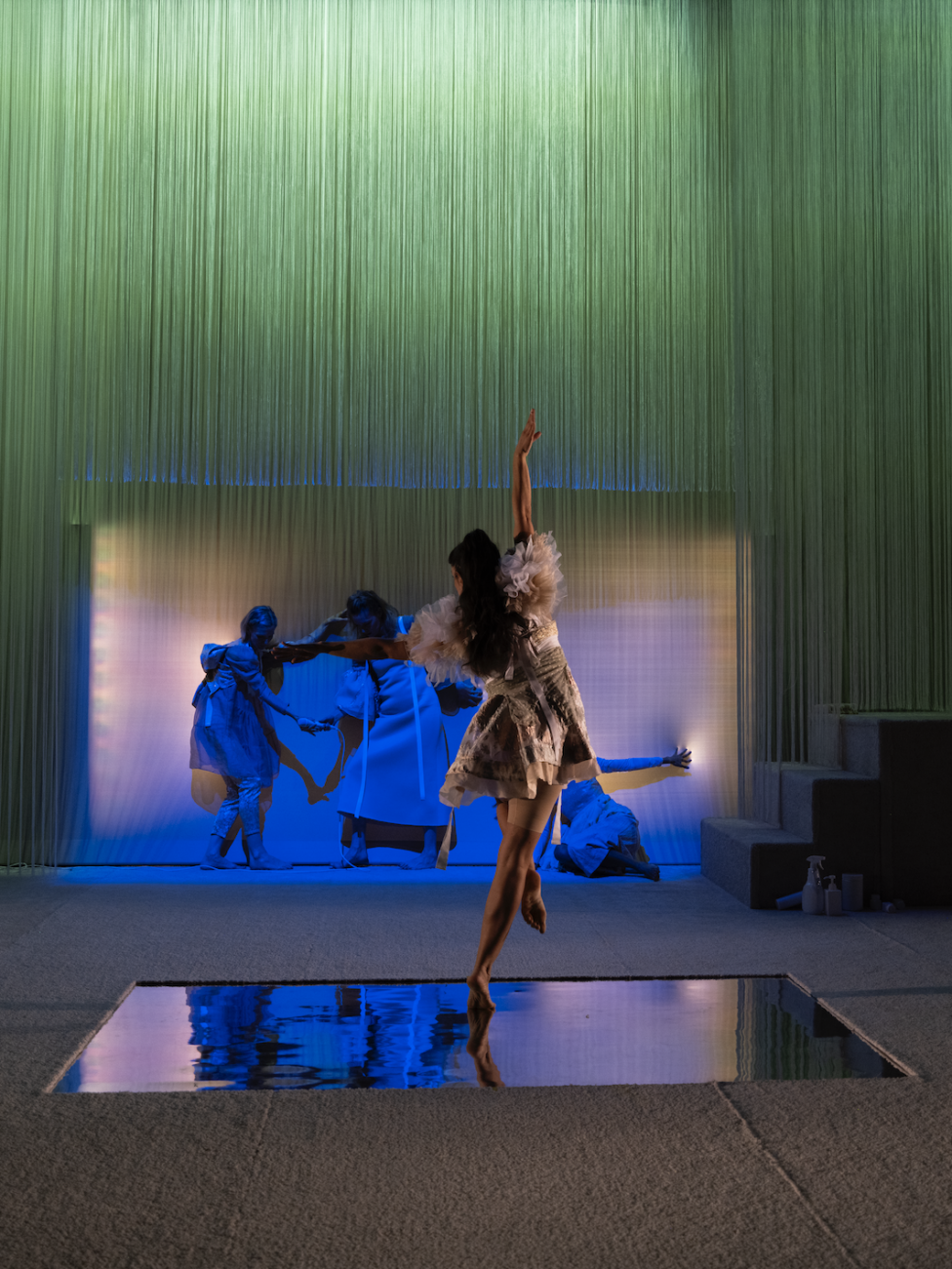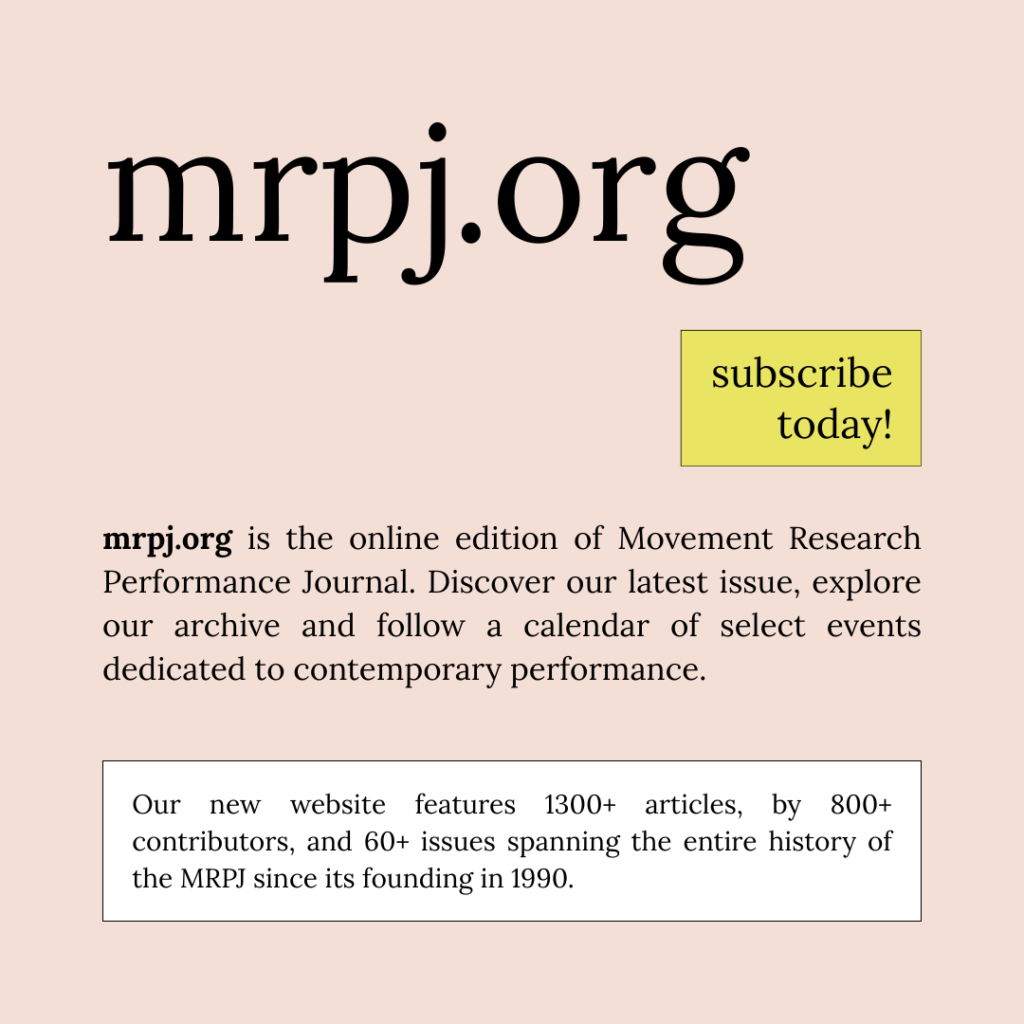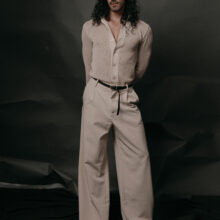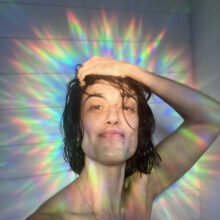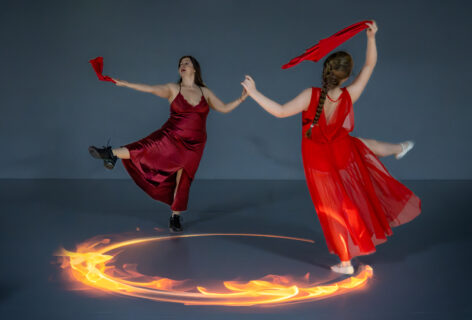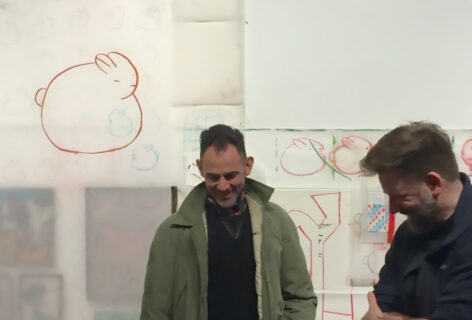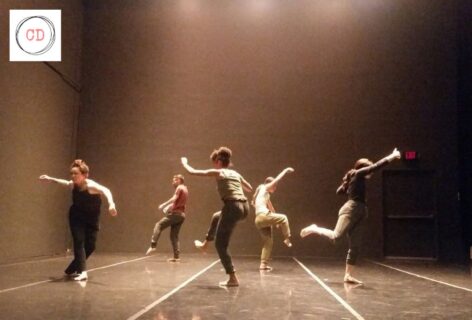One of our favorite things to do at Critical Correspondence these days is to put people in conversation that we perceive to be in dialogue, though they may not (yet) know each other. It is both a genuine interest and a political strategy for us to know one another, work together, and continue organizing ourselves.
Miguel and devika weren’t acquainted before this conversation, but as you’ll experience, their overlaps are extensive. I think it’s safe to say that they are friends now. Both are dancers who think deeply about the craft required to embody a wide range of roles, styles, and modalities. They are adaptable and adept, moving into new choreographies with an attention to their own internal elements. Together they uplift their transcending identity as dancer, unattached to any particular project or person. To be a dancer is to choose radical presence and radical present tense.
—Londs Reuter, CC Co-editor
This article has been edited for the purpose of publication.
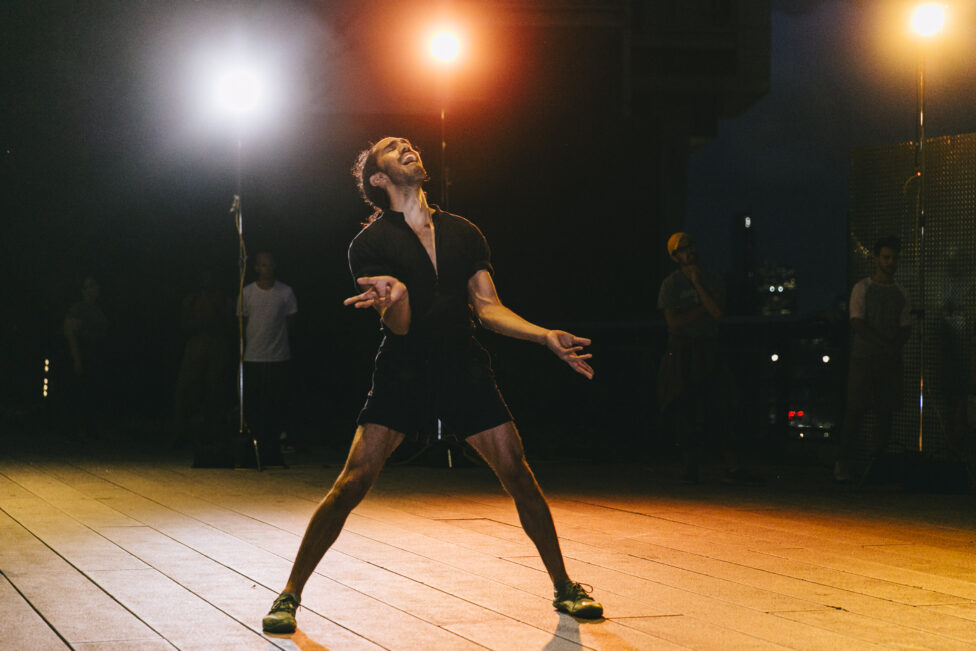
Miguel Angel Guzmán
I get a lot of people always asking me: When are you going to do your own work? And I’m like, “I am doing my own work. This is what I do.” It cannot happen without us, you know? You are the medium. That’s how I’ve always seen our work as dancers, actors, performers. You channel the ideas of whoever is leading the project with your own perceptions and your own creativity, and then off it goes into the world.
devika wickremesinghe
I mean, that’s a really common question that people inside and outside the dance world always bring up. I’ve really struggled with that question. From your training and your background, has that always been something that you knew?
MAG
Definitely. I think because I started as an actor. I have been acting since I was a kid, and I actually went to school for theater before deciding to study dance as well.
dw
I mean, that’s not really a thing that people ask actors like, “Oh, you’re an actor, When are you going to make your own work?” Or is that a thing?
MAG
No, I don’t think so. If anything, the question that actors get asked is: Do you ever want to direct? Or, when are you going to start directing? This is when having a hierarchy is actually good, because everybody knows what they’re best at, and there’s so many other talented people that are meant to be doing, whatever… acting, writing, dancing, choreographing, directing.
My background, first, was watching movies or plays and playing at home… I would just play in front of the mirror. I was a lonely child, I had all these stories in my head. I would play alone a lot. And all of it was basically having a split personality or multiple personality disorder, and being both the good one and the bad one, and all of the things, and it was so much fun! And then eventually, when I got more courageous, I would invite a cousin or whoever to come watch a movie but in reality what they saw was me playing all the parts.
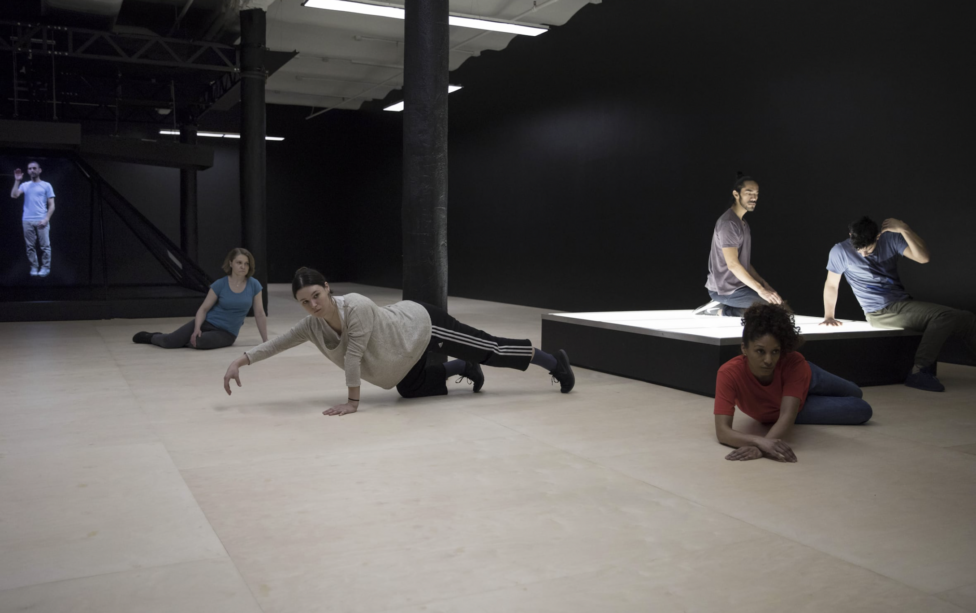
dw
You gotta name a movie! What did you like?
MAG
Two come to mind: The first one was, Honey, I Shrunk the Kids. Fantastic film. There’s a scene where a girl is standing on a leaf and then it starts to rain. A drop of water hits the leaf. She jumps or falls or whatever, and I would jump from the couch into the floor and smack my body. The other one was Batman Returns.
dw
Oh yes, sexy, yeah.
MAG
Yeah well, guess who I would be.
dw
Cat Woman?
MAG
Yeah, 100%. Michelle Pfeiffer!
dw
So, how old were you then?
MAG
Oh, that was, like, ’92. I must have been six or seven. I started learning English when I was a kid, but by then, I think the language was still too advanced to understand it all. I would get certain things. I have a cousin whose mom is American, and so I would be like, “Life’s a bitch, now so am I.” And my aunt was like, “No, you don’t say that word!” I’m like, “what, life?”
dw
Wow.
MAG
I do feel like the work of the performer is to channel something and to connect it within you so that whoever receives it, it will do something for them. Lately it feels like art is just consumed. What isn’t taken into consideration is everything that the artist has done in order for it to exist.
dw
Absolutely.
MAG
And then, even before seeing the thing—whatever it is, visual arts, dance, or film—there’s already an opinion about it. And it’s like, wait a minute! You do not know what this is about! What people did!
dw
I have too much to say about that…
MAG
I’d love to hear it.
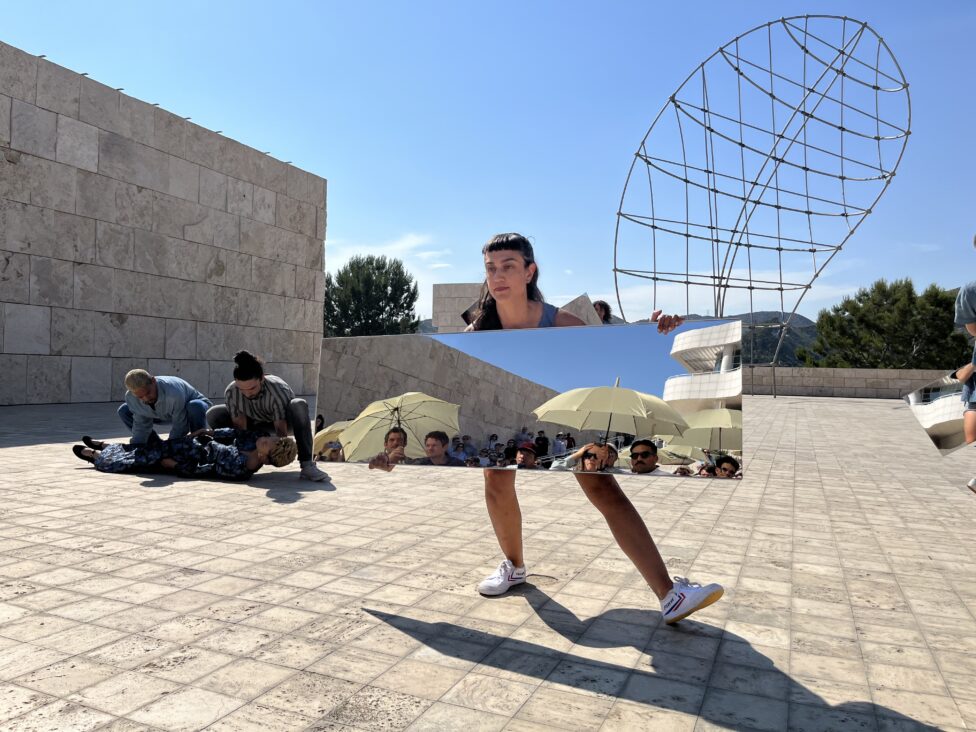
dw
It’s all mediated through Instagram or whatever—the promotion of a thing, the packaging of a thing, and how flattening it is—it’s taken a toll on all live performances and the way that people view the work of an actor or a dancer.
I grew up before the internet. So the ways that I think about being a dancer person are very different from the ways that people think about it now, or the ways that young aspiring dancers think about it now. You and I are talking as performers who perform in multiple contexts, in different cities, for different choreographers, for a public that is consuming in that way that you’re talking about. So I think it’s important to frame how we approach what we’re doing from this perspective.
And it’s interesting that you’re talking about acting, because I really agree with this idea of “I’m a channel for the choreographer’s vision,” for what the piece needs, but also: I’m not neutral. An actor really surrenders to the project, but you can see the livelihood of that person. That person is alive! They have character.
You’re a channel, but you’re not just a vehicle, and that’s where the artistry comes in. I’m not just a blank face, or somebody to throw their vision upon. And also, contrary to popular belief, no one is replaceable.
MAG
And even if you were replaced or couldn’t do it because of specific circumstances, the piece will not be the same with another body doing the same part or whatever.
When we get asked these questions, “Are you a dancer? Are you a choreographer”? Whenever I say, “Yes, I’m a dancer”, they’re like, “Oh, what company are you with?” As if that is the only means of existence for a dancer. And in my case, I have never been with a company. I’ve always been freelancing. It’s almost like, “Oh, then you’re not a dancer,” because you didn’t make it into a company.
dw
And we’re talking about this thing of “nobody knows anything about dance,” right? If you’re talking to somebody, especially in this country, about what you do, that’s one layer. But also those kinds of ignorant ideas permeate our community as well. This conversation isn’t actually happening anywhere else.. You know what I mean?
I went to school for dance at a time when my college was steeped in the old fashioned American modern dance, training people to join Limon, to join Cunningham. There was like a huge change of leadership halfway through, and they started bringing all of these different downtown artists. Then, I went to the American Dance Festival (ADF). I think that’s my real training, the ethos of going to ADF and at the time feeling really frustrated and self critical about my technique. I was a really bookish and academic kid. ADF was such a feast to meet these mentors who were doing it a different way. In college it was a feeling of “good training is one kind of training” and learning all these pieces from downtown choreographers and having a double major in academics was almost too scattered. In hindsight, it’s a strength and led me to be able to be adaptable in different people’s work. I am an artist and a channel, and the way I can really channel is thinking of every performance opportunity as me being in drag. I’m playing the role of the person who does this the best.
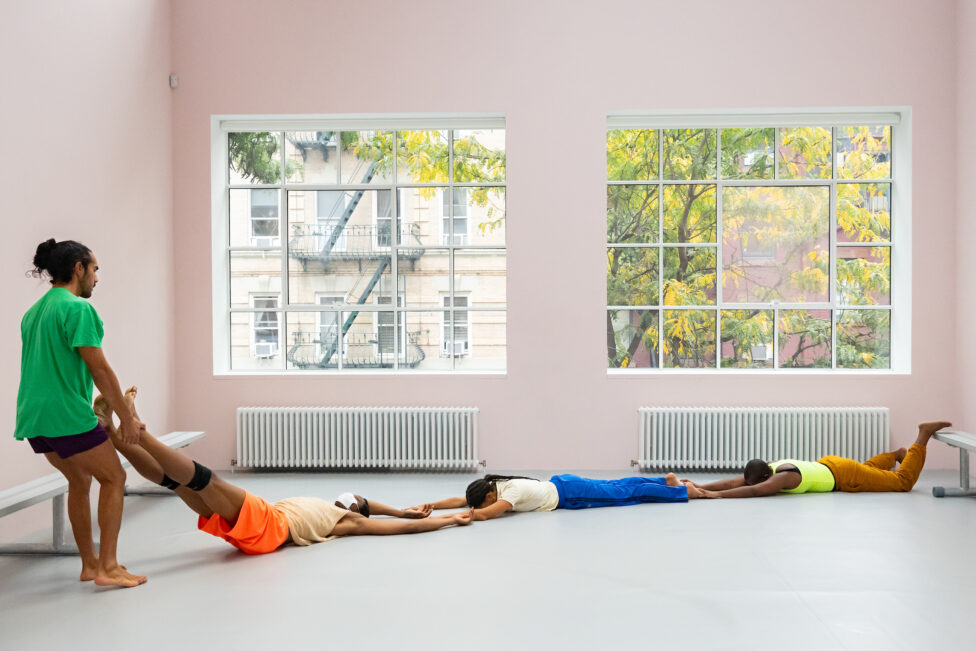
MAG
I used to think, “…but if I don’t have one technique, then I don’t have anything. I’m just wobbly, I don’t have any real ground.” In hindsight, having that multiplicity of things, that Gift of Choice, makes you more adaptable. Every new piece with somebody different or even with the same choreographer is a completely new language; you’re learning to speak again, and you pretend that you already know how to do it.
dw
It’s kind of an internal joke.
MAG
And you bring all of your insecurities to it as well.
dw
You bring everything to it. The word that really pops out from what you’re sharing is adaptability.
So we’ve got this company model that’s not for everybody, and is probably disintegrated, or, at the very least, it’s old fashioned. Nobody’s doing this because we’re making a million dollars. Nobody’s dancing to have sane and stable lives. But I continue to dance because it gives me the mental and spiritual framework to be alive right now. Like in an apocalypse like we’re going to have to be, and we already are, adaptable to many, many precarious situations.
And, because, pleasure. It’s only later in life, where I’ve gotten to this point of, “Oh, I should only be doing this if there’s deep pleasure.” It can be challenging, obviously. But why, when it’s so hard to be a dancer, on so many levels, why make it harder with all of that judgment or stress about ambition or career when literally none of this matters.
It sounds like we’re sharing our internal toolbox of how to navigate. Similar to an improv prompt. I’m thinking of Deborah Hay, or different modalities of improvisation. It’s to be a great performer, but it’s also for life.
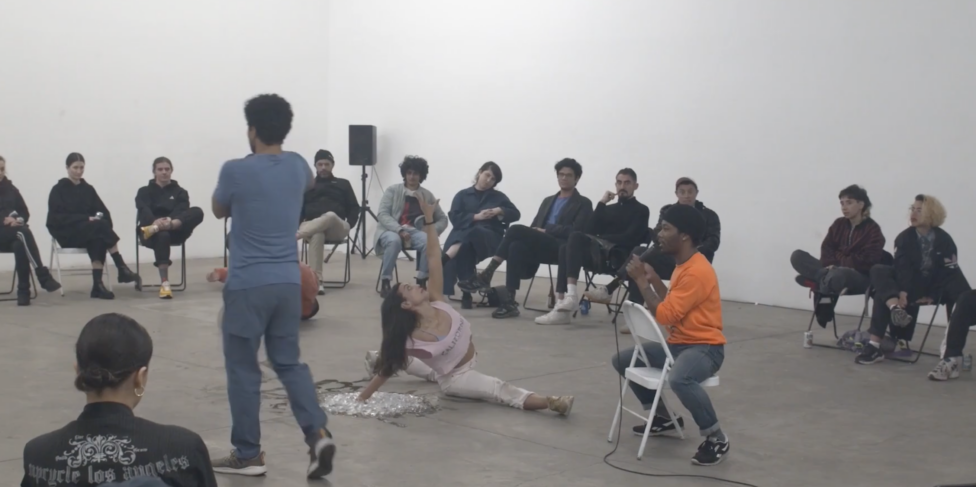
dw
My question for you is the same stupid question that people ask. , do you have the desire to choreograph or do anything else?
MAG
I do not. It’s so funny because my partner asked me, “So, Miguel when are you going to do your own work? Where’s your voice in this?” And I’m like, a total angry cat ready to kill. I was like, “What do you mean?” I was so serious. “What do you mean my own work?” This is my own work. I have no interest in being the orchestrator of the entire thing. I’m not a master puppeteer here. I am a master puppeteer of my own internal element, and that is what I want to do. I know that what I want to do is to stand on stage or in front of a camera or whatever it is, and connect heaven and earth and this person’s ideas and my own ideas…that’s where my own creativity comes in. This is our job, to have that really delicate sensibility, and to do the research.
Ultimately, it’s a job about sensibility. In our art, we speak to the human condition, regardless of what the discourse is, or how wacky it is. If we don’t keep that open, and if we don’t keep ourselves open to the entire world and what’s happening with all the beauty and the madness, then we’re not doing our job right. I don’t have any interest in being anything other than a performer, dancer, or actor.
dw
It’s really more than a full time job. I have a dear friend and somebody who really shaped how I feel about all of this stuff, Jmy James Kidd, a wonderful person and DancerPerson and dance maker and community catalyst and many more things. She’s in Los Angeles, but When I met her, she was dancing for Neil Greenberg and all of these different downtown people who I looked up to. A superstar dancer also making work, making AUNTS and MGM. Something that she was doing at the time that really influenced me is that whenever she would be in somebody’s show, in the bio, she would have a different name, like an alias. I can’t speak for her, but at the time, that was a radical act to me, to be like, I’m not defined by this one performance. I’m not defined by the person I work for, or my bio. You know who I am. I’m right here, and what I am in this piece is what I am right now. Being present and doing that kind of work of “Just being a dancer.”
If I think about myself, I have to be the CEO of my own company. I have to be the research department, engineer, personnel, and the medical department. It’s many, many different parts of my whole body that go into me being a channel. Maybe there’s an aspect of the word “channel” that could feel passive, but to me it’s so active. It’s what we’re drawing attention to. The specific artistry that it takes to do your training, make those somatic connections, translate somebody’s work. I really hear what you’re saying.
Also for myself, it’s totally selfish. I’m a glutton for sensations and experiences, and it’s like, bring it on, give me more.
MAG
Yeah, you are!
I don’t think it’s ever passive because you’re always listening, you’re always open, you’re always absorbing. Even when somebody asks you, “What are you doing now?” and you’re not in anyone’s project and you’re not working on anything right now, you’re still working. What I’m doing now is absorbing and recharging. I’m seeing, and taking in, taking in, taking in, because that’s what’s going to make me ready. All that new nourishment is part of what I’m going to bring to the conversation when I’m in a project again.
dw
Less of, “you serve the piece.” The piece serves you. We’re the art, but also, we are served by the structure of the work.
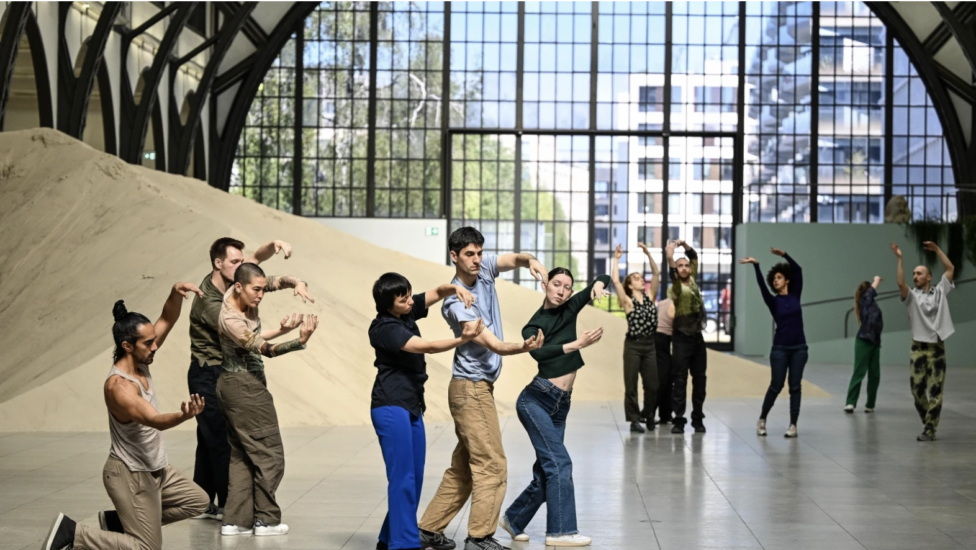
MAG
Yeah, it’s a relationship. I have to get something out of it. Because it cannot just suck the life out of me, you know? It is a community. A project is a community. Luckily, I’ve been in such projects. I haven’t been in a dictatorship project where you’re just considered a robot, and you do the things and you get paid and you go home. Our craft (as performers) is and can be a very lonely road. You don’t have a team. We’re not super famous. The actual work to stand on stage or wherever, whatever the medium is, is a lonely work. Not in a sad way, but it’s a job where you just need to quiet down and take a deep plunge and then come back.
dw
Which is a very beautiful and specific kind of camaraderie. When I’m in a piece with other people, and I’m talking to you, and I’m reading Critical Correspondence, it’s like, we are obviously all artists alone in conversation, in community with each other. That kind of friendship and camaraderie in this kind of work is very special, because there’s so much autonomy to it. But we’re just comparing notes. We’re not one blob altogether. We’re just like, “How are you doing it?”.
MAG
Yeah, yeah, we’re folding into each other.

